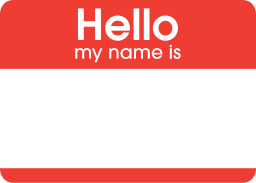I’ve been thinking about this and I’d love to know your thoughts.
The other day, one of my daughters asked me a question: “Hey, Mom. If someone is a transgender woman who is attracted to other women, is she a lesbian?” And then the next day she asked, “Hey, Mom. If two bisexual girls are in a relationship with each other, is it a lesbian relationship?”
She wasn’t trying to be a smartass—they were honest questions. She’s at an age where sexual identities and relationship dynamics are becoming really important. I answered as best as I could.
But her questions got me thinking about labels.
One the one hand, why worry so much about what we call people? Labeling leads to stereotyping. It can place artificial limits on human beings. All of us are way too complicated to be summed up in a word or two. And when it comes to romantic relationships specifically, does it make any sense to classify them? What’s important is that people care for each other, right?
But. But I have degrees in psychology so I know that labeling seems to be an instinctive human trait. And labels can be empowering. They can be a source of pride and solidarity. Sometimes instead of dividing us, they can be a source of commonality, maybe even bringing us together with people who we might otherwise not notice. A label can even have profound legal consequences. For example, it matters in a lot of ways whether two people are domestic partners or spouses.
To what degree are you comfortable with labeling yourself and your relationships? What do you see as some of the risks and benefits? Do we try too hard to label people in our society? Does it make a difference when labels are self-imposed rather than placed on us by others?


Your daughter is asking interesting questions! Cool that it spurred this discussion of labels.
I am quite comfortable labeling myself. I’m happy to use labels that others claim for themselves in reference to them, or leave off the labels if they don’t like labels. In terms of relationships, though, that’s a little bit different in my view.
I prefer to leave the labels off of a relationship, because it can give people a mistaken notion of a person’s orientation. Your daughter’s example of the two bisexual girls in a relationship is a perfect example. If people call it a lesbian relationship, other people might assume that means that the girls are lesbians, which is not the case. If I call my current relationship with a cisgender man “straight”, that can give the impression that I’m straight, but I’m not, I’m pansexual.
Risks of labeling oneself – not a whole lot, beyond whatever stigma would be associated with whatever one labels oneself as. Risk of labeling others with the labels they identify with – same. Risk of mislabeling others – offending or hurting them, misinforming or confusing other people who you might talk to them about. Risk of labeling relationships in general – see above. Risk of all labeling – thinking you know exactly what the label means and putting someone into a neat little box that they might not quite fit into.
Benefits – I agree that humans are usually more comfortable with labeling and categorizing (both from psychology classes and life experience). It makes things clearer when a label has a definition and someone who identifies with that label fits that definition.
Do we try too hard to label? Probably.
Self-imposed labels are always preferable than externally imposed labels. Everyone should have the right to label themselves.
Looking forward to seeing what other people have to say!
I’ve never been a huge fan of labels, mostly because things look vastly different form the outside, sometimes, than they truly are on the inside. Like my relationship that looks like what most people would label as traditional marriage. That label doesn’t reflect who I am, who my kids are, or, I’m coming to realize slowly, and probably too slowly, my husband. I had labelled him in my mind, and he isn’t that guy. It’s caused a lot of strife to try and cram him into the box I thought he belonged in. He doesn’t fit and doesn’t want to fit. Even as open-minded as we all like to think we are, sometimes, we make mistakes.
And then. sometimes, we need the labels, too. It’s a very grey and foggy area.
Great post, Kim 🙂 Your daughter is lucky to have such an awesome mom.
I was thinking about labels not so long ago myself. I identify as bisexual (it’s a label I claimed 25 years ago), but then I was talking to a friend who self-identified as pansexual and I started thinking about it. Technically, that label fits me better (I really don’t care if someone is male, female, somewhere in between, transgender, whatever), *but* it was so hard and such a long fight to come to terms with the label bisexual that I’m not willing (or maybe just not ready) to give it up–even though it’s fraught with issues. (Despite the issues, once I had a label for myself, I was much happier; if other people have issues with bisexuality, that’s their problem not mine 😉 )